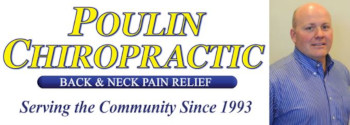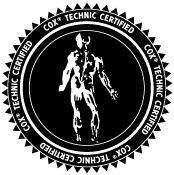Ashburn and Herndon Back Pain May Leave Your Cognition A Bit Foggy Bee Pollen May be of Help
Back pain can leave its sufferer feeling somewhat fuzzy headed. Cognitive impairment and back pain come together for some. Cognitive impairment isn’t a topic you’d think “chiropractic,” but it is an issue your Ashburn and Herndon chiropractor thinks about as it is seen in low back pain patients. Poulin Chiropractic of Herndon and Ashburn watchfully observes our Ashburn and Herndon back pain and neck pain patients for their handling of the condition. Some are ok; others struggle a bit. We’ll be sure to help with any issues like this. New studies discuss how bee pollen may be beneficial in helping.
COGNITIVE DYSFUNCTION AND BACK PAIN
Degenerative disc disease in the lumbar spine is a growing concern globally as the world’s population grows older. Dementia has been associated with lumbar degenerative disc disease as a result of physical dysfunction, quality of life, and pain. Specifically, one study stated that 41% of patients with lumbar spinal stenosis experienced mild cognitive impairment. (1) Short, simple screening tests and questionnaires can efficiently find cognitive impairment. Once found, cognitive impairment may be challenged by interventions like cognitive stimulation and training, exercise, medications, and supplements which showed some good effects on patients’ physical and cognitive function though not curative. (2) Chiropractic is ready to play an integral role in back pain management. Poulin Chiropractic of Herndon and Ashburn works to reduce the back pain with our Ashburn and Herndon chiropractic treatment plan in hopes of reducing the cognitive dysfunction brought on by the stress of pain.
BEE POLLEN FOR COGNITIVE DYSFUNCTION, ANXIETY
Researchers described chronic stress as a potential issue linked to anxiety, depression, and cognitive dysfunction. (Ashburn and Herndon chiropractic patients understand the stress that comes with back pain!) With bee pollen’s therapeutic effects known to be related to its powerful antioxidant quality, an analysis of Anatolian bee pollen’s effect on depression and anxiety found that it reduced anxiety-like behavior in the study’s rats. The researchers explained that the bee pollen decreased oxidative damage and neuroinflammation produced by immobilization stress. (3) That is a novel approach Poulin Chiropractic of Herndon and Ashburn hasn’t heard of often!
BEE POLLEN FOR COGNITIVE DYSFUNCTION
Bee pollen’s use in public health goes back into ancient times. The important health and medicinal properties make it a treasure trove of nutrition. Made of plant pollen and honeybee secretions and nectar, bee pollen contains bioactive compounds including proteins, amino acids, lipids, minerals, vitamins, polyphenols, and carbohydrates. Components of bee pollen are reported to enhance a variety of bodily functions and protect against many diseases. (4) One such disease is cognitive dysfunction. A recent report discusses the way by which bee pollen ameliorates cognitive impairment that is brought on by “cholinergic blockade.” How? It gets down to the cellular level which is a little complex and explainable by an alphabet soup of proteins like proBNDF, tPa, ERK-CREB, Akt-GSK-3. Bottomline: The researchers end up suggesting that bee pollen would be a useful agent for treating cognitive dysfunction. (5) Poulin Chiropractic of Herndon and Ashburn shares findings like this as spine pain, back pain, neck pain, etc., are complex conditions involving many parts which frequently call for just as many different approaches like spinal manipulation, nutrition, exercise, rest, etc.
CONTACT Poulin Chiropractic of Herndon and Ashburn
Listen to this PODCAST with Dr. Michael McMurray on The Back Doctors Podcast with Dr. Michael Johnson as he describes The Cox® Technic System of Spinal Pain Management incorporation to deal with lumbar spinal stenosis.
Make your Ashburn and Herndon chiropractic appointment soon. Back pain and the cognitive challenge it often triggers aren’t odd. Poulin Chiropractic of Herndon and Ashburn offers many ways to combat both. Contact us today!



